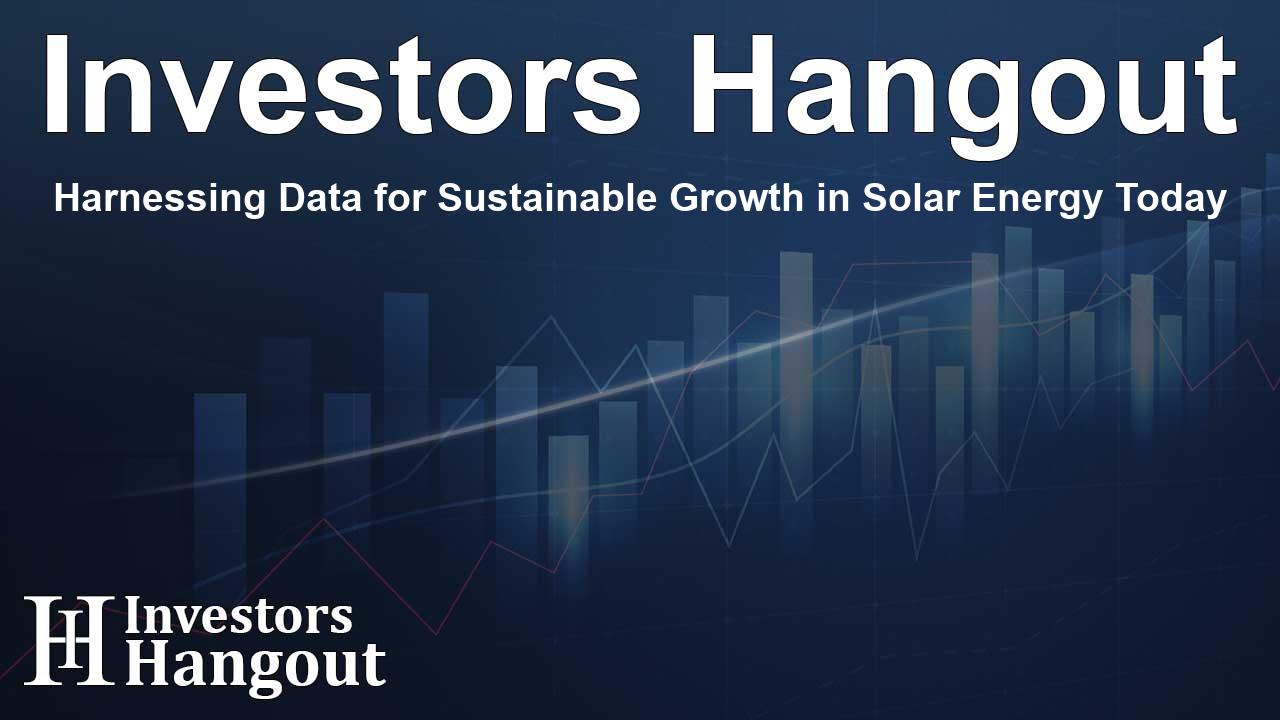Harnessing Data for Sustainable Growth in Solar Energy Today

Understanding the Future of Solar Energy Through Data
The future of solar energy is brimming with potential, particularly as data is becoming a pivotal element in driving innovation and operational effectiveness. Recent surveys indicate that a significant portion of industry professionals believe solar power will lead the charge in energy transitions. This article delves into the insights gathered from a recent survey conducted by Fluke Corporation, highlighting the challenges and opportunities faced by the solar sector.
Key Findings from Fluke Corporation's Survey
Fluke Corporation's latest survey reveals intriguing insights about the current landscape of solar energy. It surveyed over 400 professionals, including solar original equipment manufacturers (OEMs), technicians, and installers, across various countries. Notably, a staggering 63% of respondents predict that solar will become the leading energy source in their respective regions, signifying a transition towards renewable energy.
Concerns About Efficiency
Despite the optimism, 91% of survey participants expressed concerns regarding the efficiency of existing solar panels. Inverter failures emerged as a common setback, identified by 39% of respondents. These issues underscore the necessity for improved maintenance strategies within the industry, particularly a shift from reactive to predictive maintenance approaches.
The Shift Towards Predictive Maintenance
Many professionals surveyed recognized the importance of transitioning to predictive maintenance. Nearly a third admitted to current reactive maintenance methods, but over half highlighted the urgency of adopting predictive maintenance practices. The incorporation of advanced technologies will not only streamline maintenance operations but also enhance overall system efficiency, allowing solar energy businesses to thrive.
Training the Workforce for Future Challenges
The survey findings illuminate a pressing concern about the skills gap in the solar industry. As technology advances, training technicians to use advanced diagnostic tools becomes crucial. A strong 59% of those surveyed emphasized the need for comprehensive training in these areas to equip the workforce with the skills required to tackle evolving challenges effectively. Moreover, 53% pointed out the necessity for specialized training in electrical diagnostics, reflecting the industry's rapid technological growth.
Embracing AI for Solar Innovations
Artificial Intelligence (AI) is carving out a space for itself within the solar energy market. Approximately 45% of respondents see AI integration in solar design and maintenance as a significant opportunity. Additionally, there is enthusiasm for adopting AI-powered analytics, with 36% eager to leverage these technologies to boost maintenance efficiency.
Addressing Supply Chain Concerns
The survey also touched upon supply chain resilience, an area of considerable concern for industry players. Fluke's Solar Application Specialist, Will White, noted the ongoing quest for solutions that balance adaptability and affordability amidst geopolitical uncertainties. Addressing these challenges will be vital in fortifying the supply chain, ensuring the solar industry remains resilient.
Conclusion: A Bright Future for Solar Energy
The path forward for the solar energy sector is painted with promise, guided by data-driven strategies and technological innovations. As the industry approaches the goal of a sustainable energy future, companies are taking significant steps to enhance efficiency through diverse strategies, including collaborations and investments in advanced technologies.
Frequently Asked Questions
What is the main focus of Fluke Corporation's survey?
Fluke Corporation's survey primarily focuses on the challenges and opportunities in the solar energy industry, particularly regarding maintenance strategies and efficiency improvements.
How many professionals participated in the survey?
Over 400 solar OEMs, technicians, and installers participated in the survey across several countries, providing valuable insights into the sector's current state.
What percentage of respondents believe solar will lead the energy transition?
A significant 63% of respondents believe that solar energy will become the dominant energy source in their countries.
What role does AI play in solar energy according to the survey?
The survey indicates that 45% of participants view AI integration in solar design and maintenance as a promising opportunity for enhancing operational efficiency.
What are the implications of the skills shortage highlighted in the survey?
The skills shortage emphasizes the need for targeted training in advanced diagnostic tools and electrical diagnostics, crucial for keeping pace with technological advancements in the solar industry.
About The Author
Contact Henry Turner privately here. Or send an email with ATTN: Henry Turner as the subject to contact@investorshangout.com.
About Investors Hangout
Investors Hangout is a leading online stock forum for financial discussion and learning, offering a wide range of free tools and resources. It draws in traders of all levels, who exchange market knowledge, investigate trading tactics, and keep an eye on industry developments in real time. Featuring financial articles, stock message boards, quotes, charts, company profiles, and live news updates. Through cooperative learning and a wealth of informational resources, it helps users from novices creating their first portfolios to experts honing their techniques. Join Investors Hangout today: https://investorshangout.com/
The content of this article is based on factual, publicly available information and does not represent legal, financial, or investment advice. Investors Hangout does not offer financial advice, and the author is not a licensed financial advisor. Consult a qualified advisor before making any financial or investment decisions based on this article. This article should not be considered advice to purchase, sell, or hold any securities or other investments. If any of the material provided here is inaccurate, please contact us for corrections.
